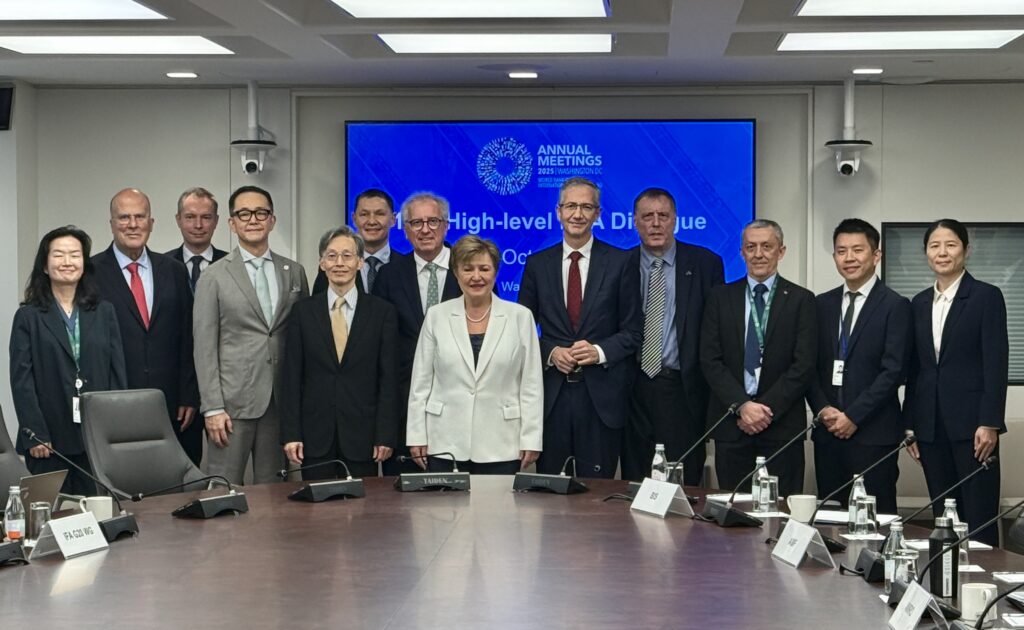
Photo credit: Cédric Crelo
SINGAPORE, October 14, 2025 – On 14 October 2025, the Regional Financing Arrangements (RFAs) and the International Monetary Fund (IMF) marked a significant milestone with the convening of their 10th Annual High-level Dialogue. Over the past decade, cooperation between the RFAs and the IMF has deepened institutional ties, fostering stronger coordination between these two layers of the Global Financial Safety Net (GFSN).
Since the dialogue’s inception in 2016, the global economic landscape has undergone profound changes. Today, broad policy shifts across multiple fronts are redefining international frameworks, bringing prolonged uncertainty and testing resilience, while many economies have limited policy space and weak medium-term growth prospects. At the same time, transformative forces, including digital technologies and artificial intelligence, demographic shifts, and climate transitions, are introducing new and complex pressures. These developments underscore the critical importance of ensuring that the GFSN remains fit for purpose.
Against this backdrop, representatives from the IMF, the International Financial Architecture G20 Working Group, and the RFAs (the Arab Monetary Fund, the ASEAN+3 Macroeconomic Research Office cum the Chiang Mai Initiative Multilateralisation, the BRICS Contingent Reserve Arrangement, the Eurasian Fund for Stabilization and Development, the European Commission, the European Stability Mechanism, and the Latin American Reserve Fund) explored how enhanced cooperation and, where appropriate, closer coordination across the layers of the GFSN can strengthen financial resilience and support member economies in navigating future crises.
IMF Managing Director Kristalina Georgieva opened the dialogue by reaffirming the Fund’s role at the centre of the GFSN. Emphasizing the need for close cooperation between the IMF and RFAs, Ms. Georgieva stressed the institutions’ shared responsibility to help safeguard the economic stability of member countries, promote crisis prevention, and provide a more effective shield against crises. The keynote address offered by Pablo Hernández de Cos, General Manager of the Bank for International Settlements, complemented the theme by focusing on the role of international reserves and the effectiveness of central bank currency reserves swap lines. The discussion was further enriched by a presentation from the IMF, which shared staff’s latest assessment of the GFSN, evaluating its performance, identifying its strengths, and proposing areas for improvement.
Amid ongoing shifts in the international economic landscape, this dialogue stands as a testament to the enduring value of multilateralism. Building on ten years of partnership, the RFAs and the IMF remain committed to strengthening the GFSN and safeguarding financial stability of their members. Celebrating this special occasion, the institutions reaffirmed their shared commitment to cooperation, solidarity, and readiness to meet the challenges of tomorrow.
The 10th Joint RFA Research Seminar will be held in Abu Dhabi in the first half of 2026. The 11th High-level RFA Dialogue will be convened at the margins of the next IMF/World Bank Annual Meetings in Bangkok in October 2026.
